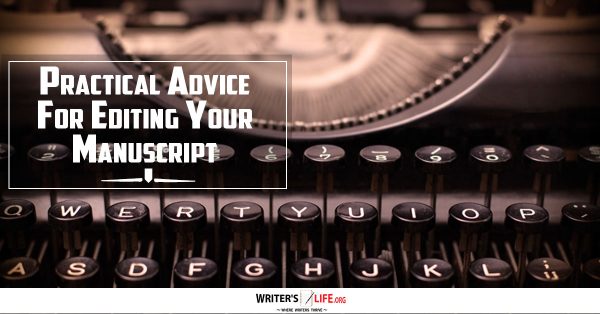- How To Tackle Jealousy In Creative Writing
- Common Submission Mistakes
- How To Stop Your Blog Becoming Boring
- The One Thing Every Successful Writer Has In Common
- How To Make Yourself Aware Of Publishing Scams
- Why Almost ALL Writers Make These Grammar Mistakes At Some Point
- 5 Tips For Authors On How To Deal With Rejection
- Top Mistakes to Avoid When Writing a Novel
- How to Avoid Common New Writer Mistakes
- 10 Mistakes New Fiction Writers Make
Practical Advice For Editing Your Manuscript

Editing your manuscript can feel like a mammoth task, and can almost take as long as writing the first draft itself! Often, when faced with the task of sitting down to edit it can be difficult to know where to start. You want to be as thorough as possible and know there will have to be a point where you say ‘enough is enough' and the whole task can feel somewhat daunting.
With this in mind, here are some practical tips on what to look out for when you begin to edit.
Long sentences
It’s so easy when you are in the writing ‘zone’ to let your sentences go on forever and ever. Look out for these when you are doing your first edit and either cut them down or break them up into two. Long sentences can be difficult for the reader to follow - it feels as though they are running out of breath. Short and powerful sentences deliver the greatest impact.
Watch out for adverbs
He walked slowly, he spoke quietly, she shut the door noisily. Excess adverbs make your prose seem weak and if you use too many of them you will fall into the age old trap of ‘telling’ rather than ‘showing’ the reader what is going on. Try to be more imaginative with your descriptions and always leave room for the reader to picture the scene themselves.
Make sure your plot is consistent
It can be very easy to make little errors in your book which the eagle-eyed reader is sure to pick up on. If your protagonist puts her bag by her feet make sure she picks it up before she moves on. If it’s a cold winter’s night don’t have her wearing a t-shirt and shorts outside. Times, days of the week, even the year can sometimes accidentally change if you are not careful! Mistakes like these are more commonly made then you’d think so go through your work with a fine tooth comb and make sure that everything makes sense.
Don’t over-punctuate
Use exclamation marks sparingly. A dash here and there is fine, in fact, some authors use punctuation very cleverly to enhance their writing. However, a manuscript stuffed with colons, eclipses, exclamations and capitalised words just looks messy and will distract your reader from what’s being said.
Don’t over complicate
You might think that using the fanciest words you can think of to describe something will make your readers go weak at the knees, but the truth is no one wants to have to stop their reading to look at a thesaurus. If your writing reads like you have tried to find a complicated synonym for every descriptive word, this won’t go down well. Same goes for removing words that are redundant, don’t say something using three words that could be said with one.
Be on the lookout for certain words and phrases
'In order to' can just be 'to'. 'Start to' can be 'begin'. Don’t use words like ‘seemed’ ‘really’ ‘currently’ or ‘very.’ Look out for uses of ‘make’ and ‘that’ and see whether you really need them or could replace them with stronger alternatives. If you are using the passive voice excessively try to think of ways to change it so it's in the present. This will make your writing clearer and more direct.
Check your spelling and grammar
This is a no brainer. Make sure your manuscript is pretty flawless when it comes to grammar, spelling and punctuation. Potential publishers and your readers will notice this so it’s worth doing well.
Editing your manuscript can be tough but it is always incredibly rewarding and satisfying when you are finished. by following the above tips you’ll get your writing into the best possible shape and can rest assured you have done everything you can to make it a success.

Bethany Cadman -author of 'Doctor Vanilla's Sunflowers'


























